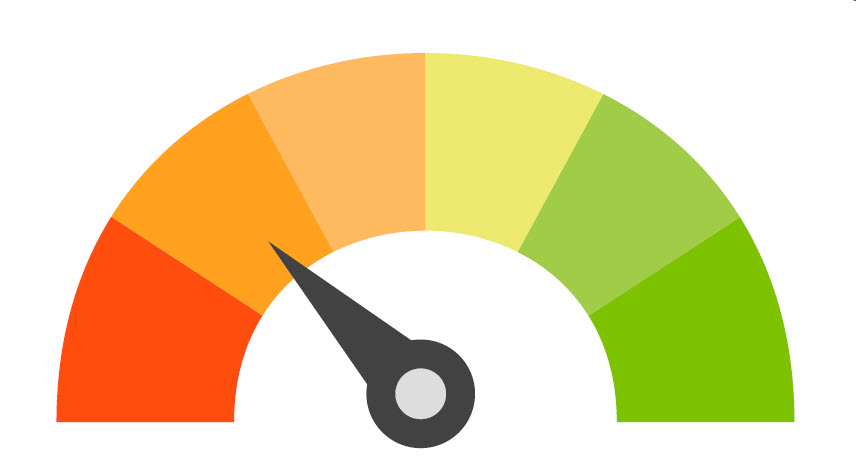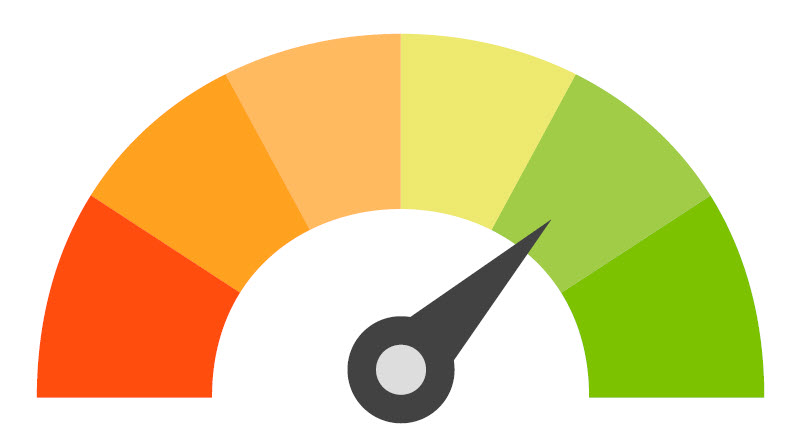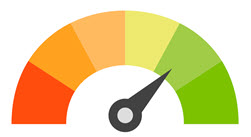about credit scoreS
A credit score is a three-digit number that’s a shorthand way to express the raw data in your credit report. Similar to how a student’s GPA (grade point average) shows how well a student is doing in school, a credit score shows how likely you are to repay a debt. This is called creditworthiness. Your credit score can affect your ability to get loans, including credit cards, car loans, and home mortgages.
The three major credit bureaus in the United States, Experian, Equifax, and TransUnion, along with FICO (Fair Isaac Corporation), each calculate consumer credit scores. Because their calculation models differ somewhat, a consumer’s score may vary depending on which bureau does the calculation. For a fee, you can purchase your credit score from these companies. You may also be able to get your credit score from your financial institution or credit card company.
When you apply for credit, most lenders run, or “pull,” your credit report, and may obtain a credit bureau score. Scoring systems were designed to help lenders speed up their loan review process and accurately determine their risk in lending to you. Scoring systems are used by retail merchants, credit card companies, insurance companies, mortgage lenders, and banks for consumer lending.

Lenders use the results of the credit bureau score to determine specific reasons for approving or not approving your loan. The scoring process only considers the information in your credit file; it does not consider your income, savings, or the amount of your down payment for a mortgage. When your credit report prints in your lender’s office, your credit bureau score is displayed. Your score can be anywhere between the high 300 and 850. Research studies by lenders have shown that borrowers with scores above 680 are more likely to make their payments on time. Borrowers with scores below 600 are more likely to be higher risk.
But lenders aren’t the only ones who may look at your credit score. Insurance companies may charge higher premiums to people with lower credit scores. Even for services that cannot be denied based on credit (like water or electricity), providers may require large security payments before starting your services if you have a low credit score.
Points are awarded or deducted based on factors such as how long you have had credit cards, whether you make your payments on time, and if your credit balances are near maximum. Some of the things that affect your credit score are:
- Delinquencies (failure to make loan payments on time)
- Too many accounts opened within the last 12 months
- Short credit history
- Balances on revolving credit near the maximum limits
- Information about you in public records, such as tax liens, judgments, or bankruptcies
- No recent credit card balances
- Too many recent credit inquiries
- Too few revolving accounts
- Too many revolving accounts

For a higher credit score:
- Pay your bills on time
- Keep credit balances low
- Apply for and open new accounts only as needed
Since length of credit history is a factor in your score, if you’re closing credit card accounts, keep the card you’ve had the longest. If you have a credit card you’re not using, check your account occasionally to make sure there is no fraudulent activity.
Another way to help improve your credit score is to have a mix of revolving credit (for example, credit cards) and installment credit (for example, a car loan).
the impact of your credit score
Your credit score is important. Good credit may make it easier to borrow money, may lower interest rates on loans or credit cards, may reduce insurance premiums, and may make it easier to rent an apartment and buy a home.
Your credit score may impact:
- Your ability to borrow money
- Your ability to get a credit card
- Your ability to purchase a home
- Whether a landlord will rent you an apartment
- The interest rate lenders are likely to offer you
- The amount of your insurance premiums
Lenders will likely look at a credit score as an indication of how reliable you are in paying your debts. Credit scores typically range from 300-850, specifically those based on the standard FICO® Score. Occasionally you will see industry-specific credit scores which can range from 250-900. Regardless if you are looking at a base FICO® Score or an industry specific score, the same rule applies, higher is better. Generally, the higher the score, the lower the risk for the lender, which may result in lower interest rates for you.
Credit scores are calculated based on information on your credit report so it’s important to make sure there are no errors on your credit report. There are five factors that determine your score:
- 35% of your score is based on your payment history
- 30% is based on current debts
- 15% is determined by credit history
- 10% is allotted to new credit applications
- 10% is about types of current credit
improving your credit score
Improving your credit score can take time. It’s important to have the best credit score you can. It may make borrowing money cheaper and can even impact your ability to get a place to live. The best way to improve credit is to manage it responsibly over time, paying your bills on time and only applying for credit when you need it.
You can start today by forming good habits and building a consistent credit history. The higher your scores, the more likely you are to qualify for the most favorable terms, which will save you money. Improving your credit scores takes time, but the sooner you address the issues that might be dragging them down, the faster your credit scores will go up. You can increase your scores by taking the following steps.
1. Pay Your Bills on Time. Your credit score shows how well you pay your bills. Payment history has the biggest impact on your credit score.
2. Pay off Debt and Keep Balances Low on Credit Cards and Other Revolving Credit. The amount you owe related to your available credit limit helps lenders know how well you can manage credit. Being overextended is a warning sign for lenders.
3. Apply for and Open New Credit Accounts Only as Needed. Having unnecessary credit can harm your credit score and might tempt you to overspend. Applying for credit creates a hard inquiry on your credit report, which can negatively impact your credit score. Make a point to only apply for credit if you need it.
4. Dispute Any Inaccuracies on Your Credit Reports. Check your credit reports from each of the three bureaus each year. Check for any errors. Dispute errors and inaccuracies with each credit bureau.
5. Consider a Secured Credit Card. If you are trying to build positive history, you may want to consider a secured credit card. These cards require a security deposit equal to the credit line. Unlike prepaid cards, payments and activity will be reported to the major credit bureaus.
